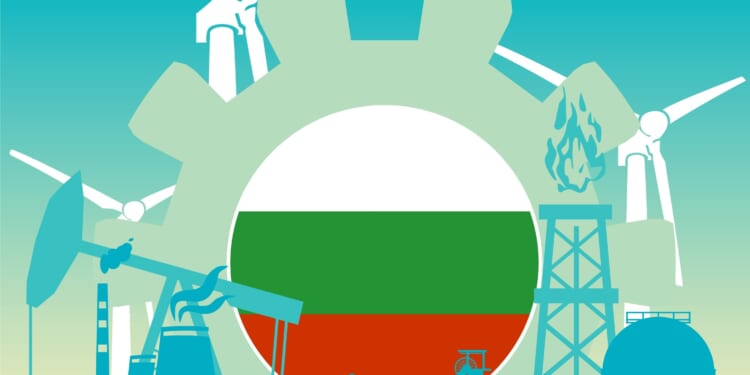Bulgaria’s energy future depends on gas as a bridge between coal, renewables, and energy independence.
The Russian invasion of Ukraine forced many countries in Europe, including Bulgaria, to rethink their energy strategies and portfolios. Today, Bulgaria finds itself striving to balance the collective goals for energy transition, set by the European Union (EU) under the Green Deal, with the more immediate necessity of energy security and energy independence.
The Balkans are central to conversations about the intersection of gas distribution, oil refining, and the US Treasury’s Office of Foreign Assets Control (OFAC) sanctions. The tectonics of political and energy resource interests will now determine how sovereignty emerges in the region, and which countries will dominate the near future. Certainly, the era of Russia calling the political shots via energy dominance is waning as this year ends.
Energy Sovereignty Could Become a Reality
In Bulgaria, the concepts of energy independence and sovereignty are complex, given that the energy sector is intertwined with neighboring countries with diverse political agendas, macroeconomic capabilities, and foreign policy objectives. Nonetheless, Bulgaria has pragmatic political and economic relations with nearly all of the Balkan nations, giving Bulgaria the opportunity to become an “energy sovereign” as well as a serious exporter of energy in the future—if it plays its geopolitical cards well.
Four Soviet-era nuclear reactors at the Kozloduy nuclear power plant have been closed (Units 1 & 2 in December 2002, and Units 3 & 4 in December 2006), which has made Bulgaria one of the most coal-dependent nations in the EU. The country faces a constant challenge to improve air quality by transitioning from domestically mined lignite coal, used in the Maritsa East Complex that produces up to 35 percent of Bulgaria’s electricity, to more sustainable energy sources. However, baseload electricity production will require far more innovative solutions than merely topping the mountains with wind turbines.
Evolving from a coal-based economy, such as Bulgaria’s, demands building a costly energy infrastructure that will increase the system costs of intermittent sources, such as renewables. Realistically, there are no commercially viable clean energy systems capable of replacing baseload electricity generated by Bulgaria’s coal power plants. Even if the EU supports safer small modular nuclear reactors (SMRs) and advanced geothermal, their deployment remains a long way off. Bulgaria’s lignite coal-fired plants are scheduled to close in the future due to the EU’s Green Deal and carbon-reduction targets.
Baseload electricity is key
Aside from coal and nuclear, which generate 70 percent of the country’s electricity, Bulgaria has historically relied on Russian gas and transmission infrastructure. Infrastructure projects in the Balkans require navigating complex regional ties and power relationships, such as Greece and Turkey now controlling liquified natural gas (LNG) deliveries into the region via terminals and pipelines. However, these pipelines crisscross Bulgaria, reinforcing its position as a strategic hub essential for gas moving onwards into Central Europe.
Bulgaria has bolstered its energy portfolio by adding renewable energy. Theoretically, it can add more; however, practically, it will take more than regulatory reforms to accommodate integrating more renewables into its existing grid. A blackout in Spain’s Iberian Peninsula highlighted the vulnerability of older grids to excess voltage in renewable-heavy systems. Interests are rising in stabilizing intermittent energy using batteries or SMRs, yet these options are not cost-effective at the moment—making deployment based on ideological grounds questionable, particularly in eastern and central Europe.
An emerging leading role to play
Currently, most of the natural gas used in Bulgaria to generate about 19 percent of total electricity is imported through the aforementioned pipelines that cross the country. This should prompt Bulgaria to re-examine domestic mineral exploration. On January 17, 2012, following 12 months of anti-fracking protests in the capital, Sofia, the Bulgarian government revoked Chevron’s shale gas exploration permit. Alleged Russian financial involvement through nongovernmental organizations (NGOs) in Brussels, and France’s decision to ban fracking in July 2011, were also factors at the time. Ten months later, Bulgaria signed a 10-year agreement with Gazprom to supply Russian gas at reduced prices.
In 2011, all bidders in the tender for the Novi Pazar shale field stated estimates between 300 billion and 1 trillion cubic meters of shale gas for development at that location. This amount would guarantee Bulgaria’s domestic gas consumption for over 300 years, as reported by the Minister of Energy at the time, Traycho Traykov, at a forum held by the Bulgarian Industrial Association in 2011. Today, Bulgaria could be a major gas exporter with the latest American technology while becoming 100 percent energy independent, in addition to providing baseload electricity together with nuclear power, enabling the phase out of lignite coal-fired plants. Fracking has made huge strides in improving its extraction methodologies via eco-friendly hydraulics, better water recycling, and methane/emission controls, as well as utilizing artificial intelligence (AI) in monitoring and automation.
Transitioning away from coal will require Bulgaria to increase natural gas-powered electricity generation. Since carbon capture and sequestration technology is now viable in Western Europe, it may be commercially plausible in smaller European countries. Additionally, it appears that the geographical promise of offshore gas in the Black Sea may give the region the opportunity for energy independence. Shell’s recent concession to explore for gas in Block 1-26 in Bulgaria’s exclusive economic zone of 4,000 sq kilometers is a good start.
About the authors: Rashmi Singh and Philip H. Bay
Rashmi Singh is Chief Lending Officer at a San Francisco commercial bank, with experience in financing tech firms and real estate nationwide. She holds an MIT certificate in Clean Energy Systems and a Master’s in Energy Law and Environmental Policies from Texas A&M University.
Philip H. Bay is CEO and Founder of Washington Global Advisors, LLC, based in Washington, DC. Educated in Denmark, France, and Yugoslavia, he is based in Washington, DC, and is a lobbyist and political consultant who has worked overseas for 35 years in Europe and Asia. Bay specializes in security, food supply chain resilience, and foreign policy issues.
Image: GrAl/shutterstock

















